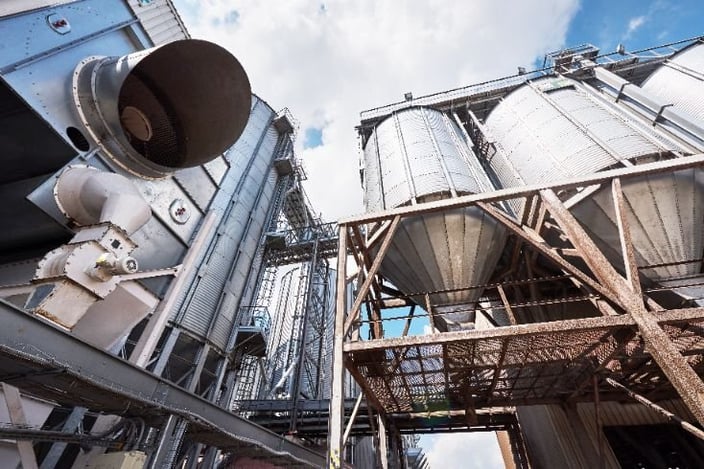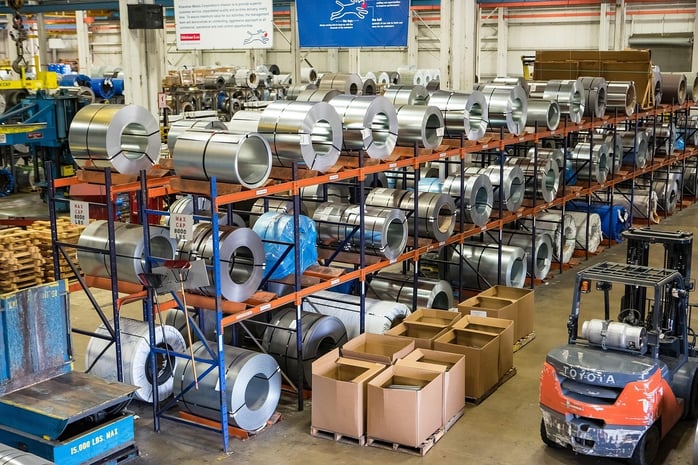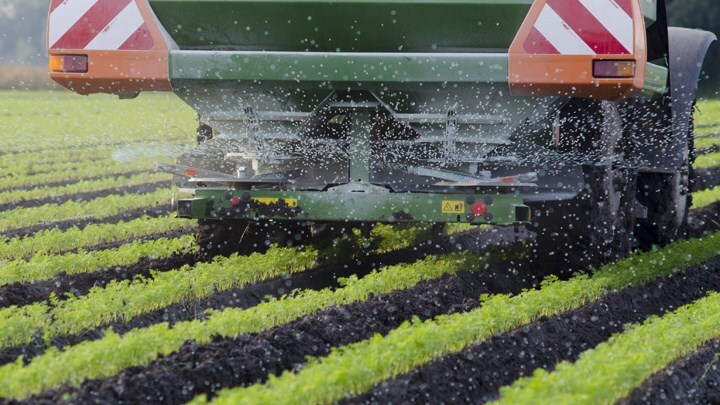What is the EU Omnibus Simplification Package for CBAM?
On November 8, 2024, EU leaders adopted the Budapest declaration, a key piece of legislation that outlines a new European Competitiveness Deal.
The Omnibus Package is one of the first major steps in implementing this strategy.
The EU has developed flagship climate legislation to support its Green New Deal ambitions - the ‘EU Omnibus package’ aims to simplify this legislation as a response to concerns that an undue burden of data collection and reporting will drive a lack of competitiveness in the EU.
Under the new rules, companies importing less than 50 tonnes of goods annually will be exempt from EU Omnibus CBAM obligations. This measure is expected to exempt approximately 182,000 importers, mostly SMEs and individuals, while still covering over 99% of emissions in scope.
For those importers that remain in the CBAM scope, the adjustments will help a number simplify the authorisation of declarants, the calculation of emissions, and compliance with the financial liability.
In addition, as of 2027, the Commission may also, for third countries where carbon pricing rules are in place, determine and make available, in the CBAM registry, the default carbon prices for those third countries and publish the methodology for their calculation.
Why the EU Introduced Simplifications for CBAM Reporting
The Omnibus CBAM Package was introduced by the EU to help ease the regulatory burden on SMEs and sole traders. The proposal seeks to provide simplification and cost-efficient compliance improvements to the CBAM regulation, without compromising its climate goals.
This measure is expected to exempt approximately 182,000 importers, mostly SMEs and sole traders, while still covering over 99% of emissions within its scope. For those importers that are covered by CBAM, such as big emitters and importers of complex goods, the regulations simplify the authorisation of declarants, the calculation of emissions, and compliance with the financial liability.
In addition, as of 2027, the Commission may also, for third countries where carbon pricing rules are in place, determine and make available, in the CBAM registry, the default carbon prices for those third countries and publish the methodology for their calculation.
.jpg?width=899&height=401&name=compressed_100kb%20(1).jpg)
Navigating the Hurdles, the Simplification Package Aims to Solve
In brief, the Omnibus package tackles three core issues:
Data Collection Complexity
Gathering actual emissions data from non-EU suppliers has proved difficult for importers. Many suppliers, particularly SMEs, lack the systems or knowledge to provide the required information. The EU framework is detailed and technical. Applying it across global supply chains, where data quality varies enormously, has proved difficult for many businesses.
Calculation Burden
The EU's calculation methodologies are comprehensive. Requiring bottom-up analysis of production processes, they must include direct emissions as well as indirect emissions. Applying these methods without sufficient preparation or data has overwhelmed many importers. The learning curve has been steeper than expected, particularly for companies new to carbon accounting.
Supplier Readiness
Alongside importers, suppliers also struggle to understand their obligations. Some are unaware of CBAM. Others cannot provide emissions data in the required format or according to EU methodologies. This knowledge gap has caused unnecessary delays, with many suppliers failing to provide emissions data in time, or in some cases providing inaccurate or incomplete data.
What Has Changed? Key Features of the Omnibus Package
Adopted in September 2025, the CBAM Omnibus Simplification Package introduces several measures that address and rectify some key problems that became apparent in the previous iteration of the framework. These are:
De Minimis Threshold
Importers of small quantities of certain CBAM goods (specifically, iron & steel, aluminium, fertilisers, and cement) are now exempt if their imports stay below 50 tonnes per year. This exemption removes approximately 90% of importers from CBAM's scope whilst still covering 99% of emissions.
However, to meet the de minimis threshold, small importers must self-declare as "occasional CBAM importers" and monitor their annual imports to ensure they don't exceed the threshold. Small importers should note, however, that the threshold doesn't apply to electricity or hydrogen.

Extended Use of Default Values
The new CBAM now allows businesses to use default values for calculating embedded emissions, thus adding more flexibility to the framework.
Crucially, importers can now choose between reporting actual emissions and using default values. When using defaults, verification by accredited verifiers isn't required. This gives importers breathing room to collect actual data from suppliers themselves.
In practice, importers have the option of using two types of default values - the average emission intensity of the exporting country or an alternative metric based on the 10 exporting countries with the highest emission intensity.
Delayed Certificate Purchase Requirements
The obligation to purchase CBAM certificates for goods imported in 2026 has been deferred to February 2027, moving forward the current deadline for certificates and removing some of the regulatory pressure. Importers won't be able to purchase certificates during 2026.
Instead, they’ll be obliged to purchase them from February 2027 onwards, with pricing based on the quarterly average of EU ETS allowance closing prices for the quarter of importation. From 2027, pricing will be based on weekly averages.
Reduced Holding Requirements
The quarterly requirement to hold CBAM certificates has been reduced from 80% to 50% of embedded emissions in imported goods. This eases the financial burden and provides more flexibility in certificate management and reporting.
Extended Declaration Deadlines
The annual submission deadline for CBAM declarations has been extended from 31 May to 31 August of the following year. The first deadline under this extended timeline is 31 August 2027.
This provides three additional months to prepare documentation and ensure accuracy. In addition, while legal liability remains with the declarant, authorised CBAM declarants are permitted to delegate their obligation to qualified third parties.
Simplified Emissions Calculations
The CBAM Omnibus Package excludes certain emissions from calculations. Embedded emissions from input materials (precursors) produced in countries under the EU ETS are excluded. Specific finishing processes for steel and aluminium goods are also exempt from emissions calculations. These changes reduce the complexity of supply chain emissions tracking.
Carbon Price Deductions
Companies can deduct carbon prices paid in third countries from their required CBAM certificates. The CBAM Omnibus Package now permits the use of default carbon prices per country, determined by the Commission. Because of this, deductions can be claimed for carbon prices paid in any third country during production, not just the country of origin.

EU Omnibus CBAM: Using the Extra Time to Build a Robust Strategy
Despite simplifying the process of declaring emissions and, in some cases, exempting previously qualifying importers, the new package isn't an invitation to delay. With more breathing space, importers can now establish a more thorough compliance framework, as outlined in the steps below.
Next Steps for Companies Importing More Than 50 Tonnes
If your business imports over the 50-tonne threshold, you'll need to apply for Authorised CBAM Declarant status starting in January 2026. This process can take up to 120 days, so it’s crucial to plan early.
Affected businesses should reach out to suppliers to ensure their emissions are properly calculated while also setting up internal policies that assign clear responsibilities, such as data collection, verification, and reporting. Lastly, identifying how carbon pricing schemes will affect your supply chain is key, as these can be deducted from your CBAM obligations.
Next Steps for Companies Importing Less Than 50 Tonnes
Although it might be tempting to assume that you might be free from CBAM’s impact if you fall into this category, this isn’t always the case. For instance, if you’re just under the 50-tonne threshold, it’s still important to monitor operations.
As soon as you exceed this limit, even by a small margin, CBAM rules will come into effect. So, even if your business falls below the 50-tonne limit, this might not necessarily apply to your suppliers. If your suppliers exceed the threshold, you may still be affected, as suppliers are likely to pass costs onto you in the form of product markups.
Maintaining open communication with suppliers is critical to avoiding this scenario, ensuring that they're able to meet their CBAM obligations without passing the costs onto you.
Next Steps in the Future of CBAM for Affected Companies
For all companies likely to be affected by CBAM, it’s important to stay ahead of CBAM regulations, as these are being revised all the time. This extends to keeping track of CBAM developments in other territories.
The UK, for instance, is already developing its own CBAM. Scheduled to begin on 1st January 2027, it will limit the scope of application by setting a £50,000 income threshold for importers, rather than the EU’s 50-tonne mass-based threshold. It will also operate as a levy, rather than via tradable certificates, thereby creating a degree of cost-certainty absent from the EU’s version.
Similarly, Norway will be implementing its own CBAM to roll out in 2027. However, this domestic version will be market-based, following the EU’s example of using tradable certificates to allocate prices.
In either case, companies with international supply chains must prepare for an increasingly complex future. The next few years will usher in a multi-jurisdictional landscape, where many different CBAMs will apply at once- each with its own distinct thresholds and pricing mechanisms.

Omnibus CBAM: Stay Ahead of CBAM Changes with CFP Energy
The EU Omnibus CBAM simplifications have, in theory, reduced the cost and regulatory burden on SMEs and individual traders. However, even in these cases, businesses are likely to experience setbacks.
Although the Omnibus regulations have simplified CBAM's technical reporting requirements, they didn't clarify how to handle goods that have already been subject to carbon pricing elsewhere. For instance, the Omnibus doesn't address whether UK ETS payments automatically qualify for full CBAM credit, or how to handle goods with mixed UK/third-country content.
There is also an ongoing issue with "Third-Country Carbon Pricing Recognition". This is where importers, including SMEs, are still facing uncertainty and administrative bottlenecks when trying to claim deductions for carbon prices already paid in exporting countries.
Without clear guidance on these issues, businesses face the risk of non-compliance and double payment. At CFP Energy, we eliminate these setbacks - streamlining compliance with complex cross-border carbon pricing rules, ensuring you don't pay for the same emissions twice.
Don't wait until the transitional phase ends to address these issues. Contact our carbon team today to see how we can help you navigate CBAM and the UK and the EU ETS.